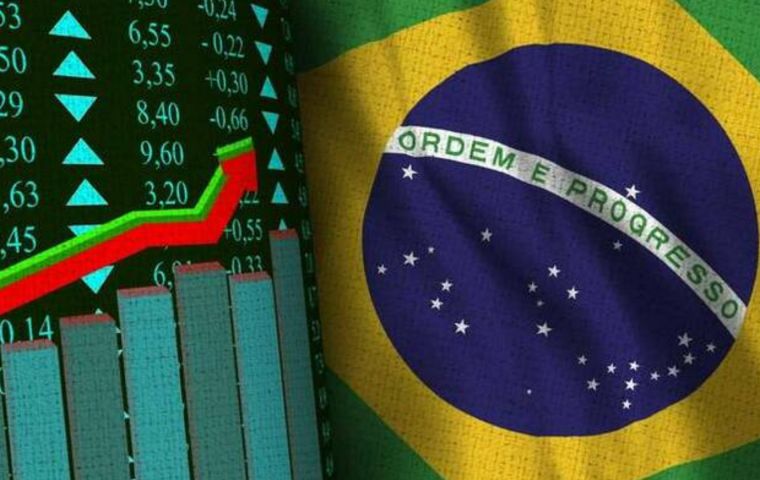MercoPress. South Atlantic News Agency
Brazil among less competitive economies but better than Argentina
 “We are suffocating the Brazilian productive chain,” Tadeu explained
“We are suffocating the Brazilian productive chain,” Tadeu explained According to a report released this week by the Swiss Business School's Institute for Management Development (IMD), Brazil ranked 62nd this year after falling two notches in the list drawn considering statistics and opinion polls among businesspeople.
This announcement came just days after President Luiz Inácio Lula da Silva celebrated his country's position as the 8th economy in the world and heralded he was aiming for the 6th spot. At any rate, competitiveness does not seem to be Lula's forte.
Despite falling behind South Africa and Mongolia, Brazil came out better off than Peru (who slid from 55th to 63rd), Nigeria, Ghana, Argentina, and Venezuela in the global competitiveness ranking topped by Singapore.
For this study, statistical indexes carry a greater weight (two-thirds) in the countries' scores while opinion polls with executives and businesspeople from different sectors come behind. In Brazil, more than 100 executives were interviewed by the Dom Cabral Foundation (FDC), IMD's partner in the survey. In all, the countries are compared on 336 indexes.
This year's edition shows a positive assessment of Brazil's economic performance, particularly regarding employment and Gross Domestic Product (GDP) growth. However, the country is among the four worst positions when looking at the cost of capital, labor legislation, public accounts, and tariff barriers, when all these items are part of the policies implemented by the current government.
Brazil ranked second-to-last in education, both basic and higher, and stood at the bottom when companies' access to credit was gauged.
“We are falling because we are suffocating the Brazilian productive chain, the cost of capital is increasing,” explained Professor Hugo Tadeu, director of the Center for Innovation and Digital Technologies of the Dom Cabral Foundation in Brazil, who supervised the survey in the South American country.
Since 2020, when it ranked 56th, Brazil has fallen six places either due to the inclusion of more competitive economies or because it has been overtaken by countries such as Slovakia, Jordan, and Croatia.
Behind Singapore, came Switzerland and Denmark for their effective public policies, advanced infrastructure, and solid basic education, which creates a favorable environment for innovation and investment.
“The macro view of our growth is satisfactory, but when we look at the micro view, there are many challenges. If we don't have a strategic agenda for the country, we'll continue to suffer in these positions,” Tadeu also pointed out.




Top Comments
Disclaimer & comment rules-

-

-

Read all commentsTell us more about the correct way the world will be in the future.
Jun 19th, 2024 - 12:47 am +2This IMD ranking is linked to a decadent world. It is linked to the West. It does not reflect the current configuration of competitiveness which is umbilically linked to strong and sovereign National States, where the premise of private initiative, in itself, is no longer sustainable.
Jun 18th, 2024 - 09:45 am -1This ranking represents the past.
Agree brasileiro
Jun 18th, 2024 - 11:56 am -2Commenting for this story is now closed.
If you have a Facebook account, become a fan and comment on our Facebook Page!